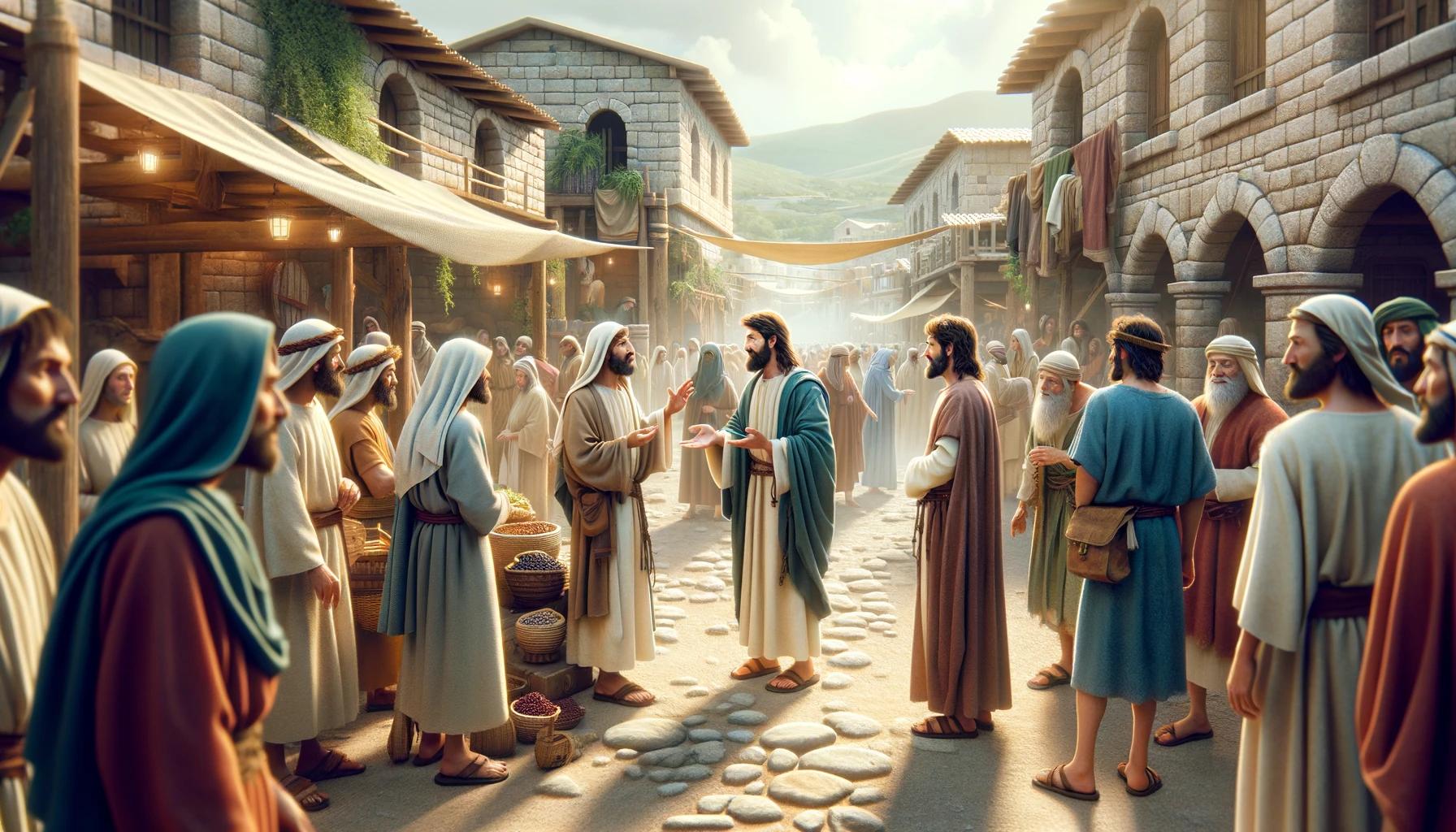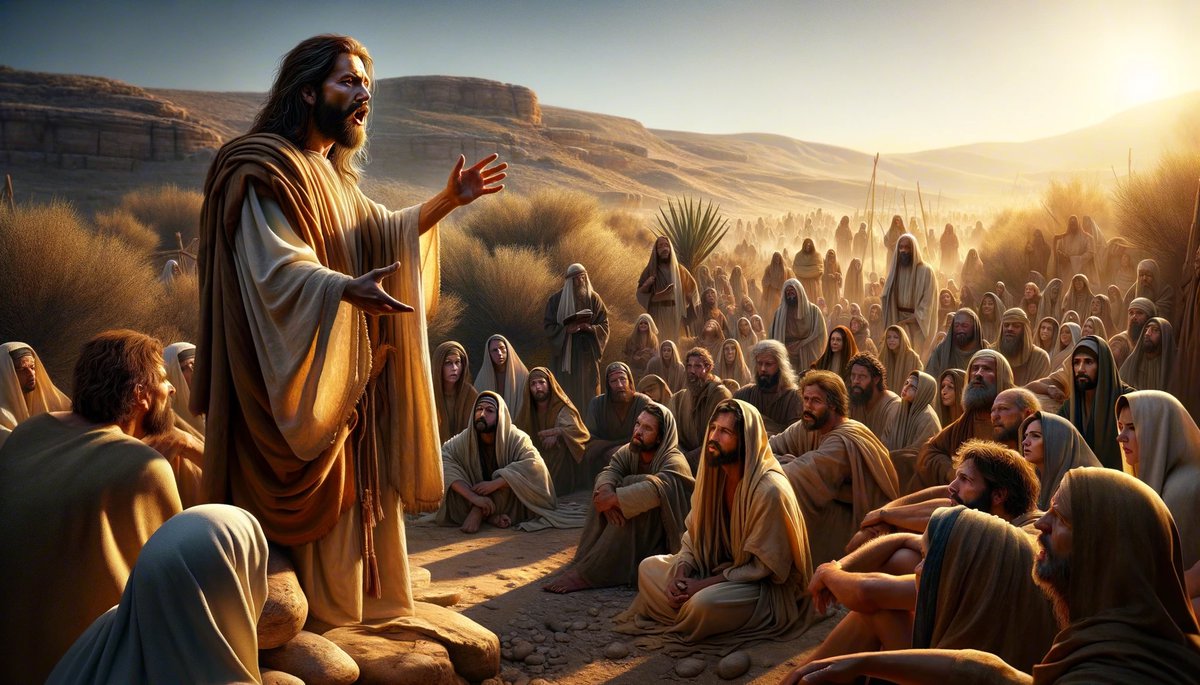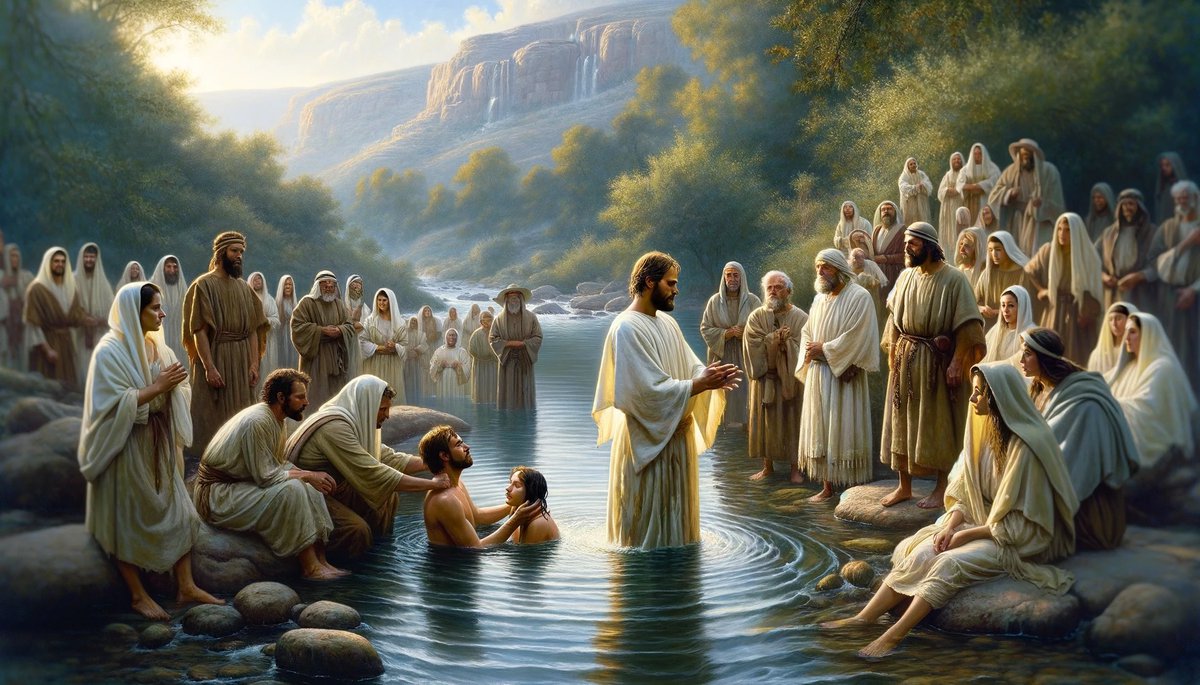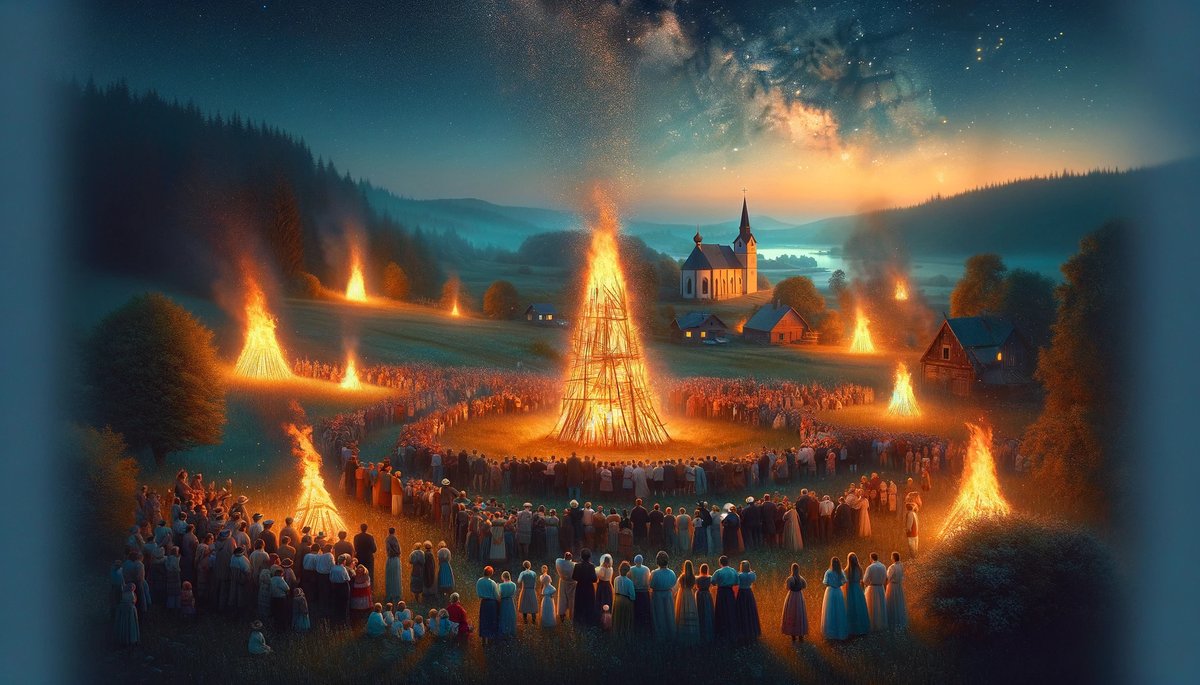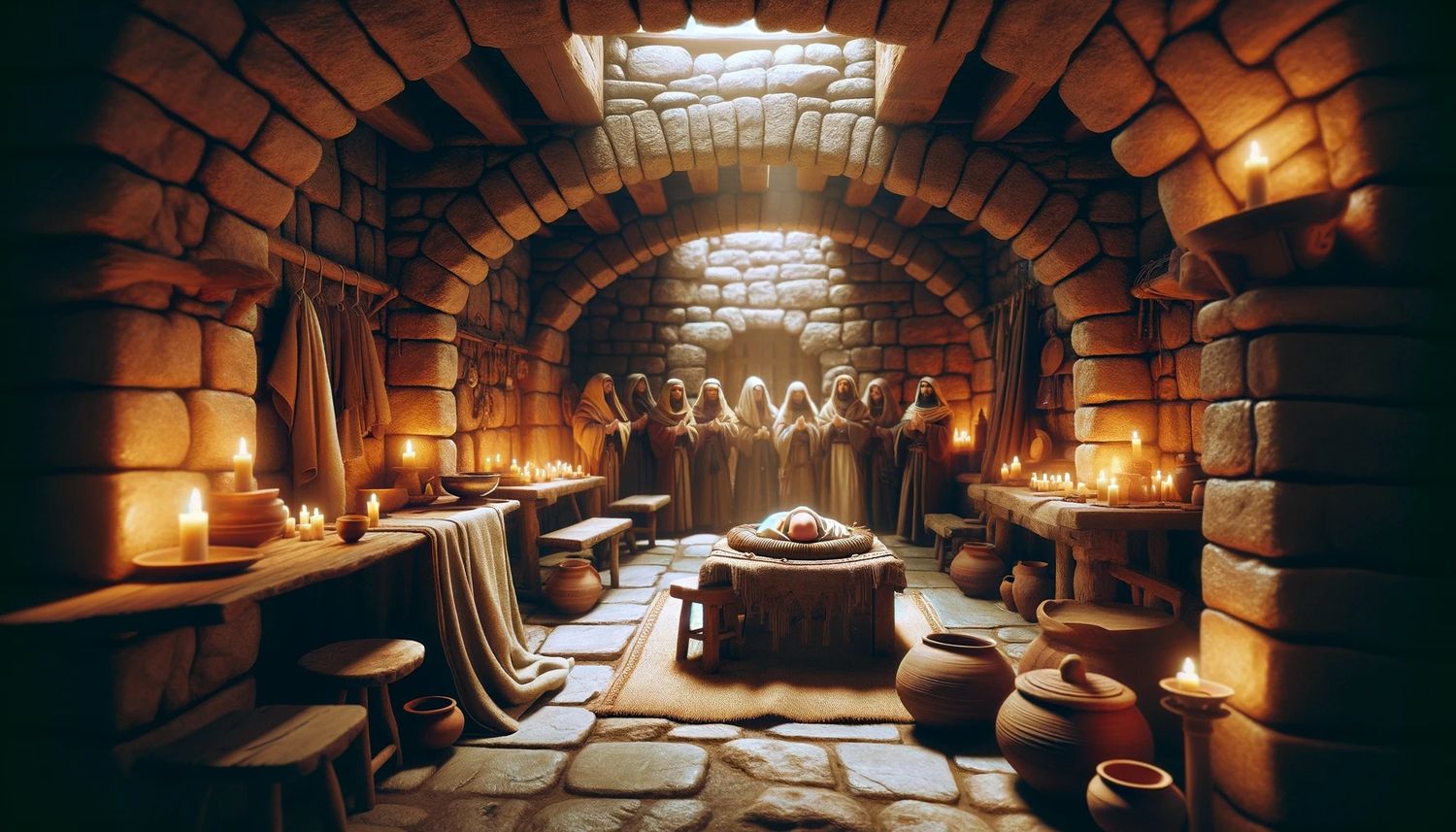Home>Theology and Spirituality>Where Is The Tomb Of John The Baptist?


Theology and Spirituality
Where Is The Tomb Of John The Baptist?
Published: February 23, 2024
Ericka Andersen, an editor at Christian.net, expertly merges digital strategy with content creation, focusing on faith and societal issues. Her communication skills enhance the platform's engaging narratives, fostering meaningful dialogue on belief's impact on society.
Discover the mystery of the location of John the Baptist's tomb and its significance in theology and spirituality. Uncover the historical and religious significance of this sacred site.
(Many of the links in this article redirect to a specific reviewed product. Your purchase of these products through affiliate links helps to generate commission for Christian.net, at no extra cost. Learn more)
Table of Contents
Introduction
The quest to locate the final resting place of John the Baptist, a pivotal figure in Christian history, has captivated the imagination of theologians, historians, and archeologists for centuries. John the Baptist, a revered prophet and the forerunner of Jesus Christ, holds a significant place in the hearts of believers worldwide. His life, ministry, and ultimate martyrdom have been chronicled in the pages of the New Testament, shaping the religious landscape and inspiring countless pilgrimages.
The search for the tomb of John the Baptist is not merely an academic pursuit; it is a spiritual odyssey that seeks to unravel the mysteries surrounding his legacy and the events that transpired after his beheading. The quest for his final resting place is imbued with a sense of reverence and a desire to connect with the profound spirituality that John embodied during his earthly sojourn.
As we embark on this exploration, we delve into the biblical narratives that recount the circumstances of John the Baptist's death and the subsequent traditions that have emerged regarding the location of his tomb. We also encounter the fervent efforts of scholars and researchers who have tirelessly sought to unearth the truth behind this enigmatic historical and spiritual enigma.
Join us as we embark on a journey through time and tradition, navigating the intricate tapestry of historical accounts, religious customs, and scholarly investigations in pursuit of the elusive tomb of John the Baptist.
Read more: Where Is John The Baptist Buried?
The Biblical Account of John the Baptist's Death
The biblical narrative of John the Baptist's death unfolds in the pages of the New Testament, specifically in the Gospels of Matthew, Mark, and Luke. John the Baptist, a prophetic voice in the wilderness, fearlessly proclaimed a message of repentance and prepared the way for the coming of Jesus Christ. His unwavering commitment to truth and righteousness incurred the ire of Herod Antipas, the tetrarch of Galilee and Perea, whose immoral actions John openly condemned.
The pivotal account of John the Baptist's demise is recorded in the Gospel of Matthew (14:1-12), where the circumstances leading to his execution are vividly depicted. The narrative unfolds with the introduction of Herod Antipas, who, despite recognizing John as a righteous and holy man, succumbed to the manipulative schemes of Herodias, his brother Philip's wife. Herodias harbored a deep-seated grudge against John for denouncing her unlawful marriage to Herod Antipas, and she seized an opportune moment to orchestrate John's downfall.
During a lavish banquet held in honor of Herod's birthday, Herodias's daughter captivated the assembled guests with her dancing. Delighted by her performance, Herod made a rash vow, promising to grant her any request, up to half of his kingdom. Prompted by her mother, the daughter demanded the head of John the Baptist on a platter. Although grieved, Herod, bound by his oath and the fear of losing face in front of his guests, ordered the execution of John.
This tragic turn of events culminated in the beheading of John the Baptist in prison, and his head was presented to the young woman, who, in turn, delivered it to her vengeful mother. The news of John's brutal demise reached Jesus, who withdrew to a desolate place, grieving the loss of his cousin and herald.
The biblical account of John the Baptist's death serves as a poignant reminder of the cost of unwavering faith and the clash between truth and worldly powers. It sets the stage for the enduring legacy of John the Baptist and the profound impact of his ministry, which reverberates through the annals of Christian history.
This tragic episode not only marks the end of John's earthly journey but also ignites the quest to honor his memory and locate the final resting place of this revered prophet and precursor to the Messiah.
The Tradition of John the Baptist's Tomb
The tradition surrounding the tomb of John the Baptist has been shrouded in mystery and intrigue, steeped in both religious reverence and historical speculation. Following his brutal execution, the question of where John the Baptist was laid to rest has given rise to a rich tapestry of traditions, legends, and claims regarding the location of his tomb.
One of the most prominent traditions regarding the final resting place of John the Baptist centers around the revered site of the Umayyad Mosque in Damascus, Syria. This ancient mosque, also known as the Great Mosque of Damascus, is believed to house the mausoleum of John the Baptist. According to Islamic tradition, the mosque was constructed on the site of a former Christian basilica, which was purportedly built over the tomb of John the Baptist. The veneration of this site as the potential burial place of John the Baptist has endured for centuries, drawing pilgrims and scholars alike to contemplate the significance of this hallowed space.
In addition to the Umayyad Mosque, other locations have been proposed as the potential resting place of John the Baptist. The Coptic Orthodox Church venerates the Monastery of Saint Macarius the Great in Egypt as the site where the relics of John the Baptist were interred. This tradition is deeply rooted in the Coptic Christian heritage, perpetuating the belief in the sanctity of this sacred space as the final abode of the revered prophet.
Furthermore, the Orthodox Christian tradition upholds the belief that the relics of John the Baptist were enshrined in the St. John the Forerunner Monastery on the bucolic Mount of Olives in Jerusalem. This monastery, nestled amidst the serene landscape of olive groves, stands as a testament to the enduring reverence for John the Baptist and his potential connection to this hallowed ground.
These traditions, intertwined with the complexities of religious history and cultural heritage, have contributed to the enigmatic allure of John the Baptist's tomb. The convergence of diverse beliefs and historical narratives has perpetuated the enduring quest to unravel the mystery of his final resting place, underscoring the profound impact of his legacy on the collective consciousness of humanity.
The tradition of John the Baptist's tomb serves as a poignant reminder of the enduring quest to preserve the memory of this revered figure and to seek spiritual solace in the contemplation of his sacred legacy.
The Search for John the Baptist's Tomb
The quest to locate the tomb of John the Baptist has been a compelling endeavor that has captivated the hearts and minds of historians, theologians, and archeologists for centuries. This pursuit is not merely an academic exercise; it embodies a profound spiritual odyssey that seeks to unearth the final resting place of a revered figure whose legacy continues to resonate across time and tradition.
The search for John the Baptist's tomb has spurred numerous expeditions, scholarly investigations, and archeological endeavors, each fueled by a fervent desire to unravel the enigma surrounding his burial site. Historians and researchers have scoured ancient texts, scrutinized historical accounts, and delved into the annals of religious traditions in a relentless quest to pinpoint the location of this sacred relic.
Archeological excavations have been conducted in various regions, including the Holy Land, Egypt, and other sites associated with the life and ministry of John the Baptist. These endeavors have sought to unearth tangible evidence that could potentially lead to the discovery of his tomb, shedding light on the circumstances of his burial and the preservation of his relics.
Moreover, the search for John the Baptist's tomb has been intertwined with the complexities of religious pilgrimage and devotion. Countless believers have embarked on spiritual journeys to sites associated with John the Baptist, fervently seeking a deeper connection to his profound spiritual legacy and the possibility of encountering the sacred space that enshrines his mortal remains.
The enduring quest to locate the tomb of John the Baptist transcends the boundaries of historical inquiry; it embodies a deeply spiritual yearning to honor the memory of a revered prophet and to draw inspiration from his unwavering commitment to truth and righteousness. As the search continues, it serves as a testament to the enduring impact of John the Baptist's life and ministry, igniting a sense of reverence and wonder that transcends the passage of time.
The search for John the Baptist's tomb stands as a testament to the enduring quest to preserve the memory of this revered figure and to seek spiritual solace in the contemplation of his sacred legacy.
Theories and Speculations about the Location of John the Baptist's Tomb
The quest to pinpoint the precise location of John the Baptist's tomb has sparked a myriad of theories and speculations, each offering a unique perspective on this enduring enigma. Among the diverse conjectures put forth by scholars, theologians, and historians, several compelling theories have emerged, shedding light on the potential resting place of this revered figure.
One prevalent theory posits that the ancient city of Sebastia, located in the West Bank of the Palestinian territories, holds the key to unraveling the mystery of John the Baptist's tomb. This theory is rooted in historical accounts and archeological findings that suggest Sebastia as a plausible site for the veneration of John the Baptist. The presence of a Byzantine church dedicated to John the Baptist in Sebastia further fuels the speculation that this ancient city may harbor the sacred sepulcher of the revered prophet.
Another theory revolves around the revered site of Ein Karem, a picturesque village nestled in the hills of Jerusalem. Ein Karem is traditionally associated with the birthplace of John the Baptist and is revered as a site of pilgrimage for Christians worldwide. Some scholars and religious authorities have postulated that the tranquil environs of Ein Karem may also conceal the final resting place of John the Baptist, adding a layer of mystique to this idyllic locale.
Furthermore, the wilderness of the Jordan River valley has been proposed as a potential location for John the Baptist's tomb. This theory draws upon the biblical accounts of John's ministry, which unfolded in the wilderness, and speculates that his burial site may be situated amidst the rugged terrain that once bore witness to his prophetic proclamation and baptismal ministry.
Amidst these theories and speculations, the enduring quest to unravel the mystery of John the Baptist's tomb continues to inspire scholarly inquiry and spiritual contemplation. The convergence of historical narratives, religious traditions, and archeological evidence underscores the profound impact of John the Baptist's legacy and the enduring quest to honor his memory through the discovery of his final resting place.
As the search for John the Baptist's tomb persists, each theory and speculation serves as a testament to the enduring reverence and fascination that surrounds this revered figure, perpetuating the quest to unveil the sacred space that enshrines his mortal remains.
Read more: Where Is The Head Of John The Baptist
Conclusion
The quest to uncover the tomb of John the Baptist stands as a testament to the enduring reverence and fascination that surrounds this revered figure. From the biblical narratives chronicling his martyrdom to the rich tapestry of traditions, theories, and speculations regarding his final resting place, the enigma of John the Baptist's tomb continues to captivate the hearts and minds of believers and scholars alike.
The biblical account of John the Baptist's death serves as a poignant reminder of the cost of unwavering faith and the clash between truth and worldly powers. His unwavering commitment to truth and righteousness incurred the ire of Herod Antipas, ultimately leading to his brutal execution. This tragic episode not only marks the end of John's earthly journey but also ignites the quest to honor his memory and locate the final resting place of this revered prophet and precursor to the Messiah.
The tradition surrounding the tomb of John the Baptist has perpetuated the enduring quest to unravel the mystery of his final resting place. From the revered site of the Umayyad Mosque in Damascus to the Monastery of Saint Macarius the Great in Egypt and the St. John the Forerunner Monastery on the Mount of Olives in Jerusalem, diverse traditions and cultural heritage have contributed to the enigmatic allure of John the Baptist's tomb. These traditions underscore the profound impact of his legacy on the collective consciousness of humanity, perpetuating the enduring quest to preserve the memory of this revered figure.
The search for John the Baptist's tomb has spurred numerous expeditions, scholarly investigations, and archeological endeavors, each fueled by a fervent desire to unravel the enigma surrounding his burial site. This pursuit embodies a profound spiritual odyssey that seeks to unearth the final resting place of a revered figure whose legacy continues to resonate across time and tradition. The enduring quest to locate the tomb of John the Baptist transcends the boundaries of historical inquiry; it embodies a deeply spiritual yearning to honor the memory of a revered prophet and to draw inspiration from his unwavering commitment to truth and righteousness.
Amidst the theories and speculations surrounding the location of John the Baptist's tomb, the enduring quest to unravel this mystery continues to inspire scholarly inquiry and spiritual contemplation. The convergence of historical narratives, religious traditions, and archeological evidence underscores the profound impact of John the Baptist's legacy and the enduring quest to honor his memory through the discovery of his final resting place.
In conclusion, the quest for the tomb of John the Baptist is a testament to the enduring reverence, fascination, and spiritual significance that surrounds this revered figure. As the search persists, each theory and speculation serves as a testament to the enduring quest to unveil the sacred space that enshrines his mortal remains, perpetuating the legacy of a prophet whose impact transcends the passage of time.



